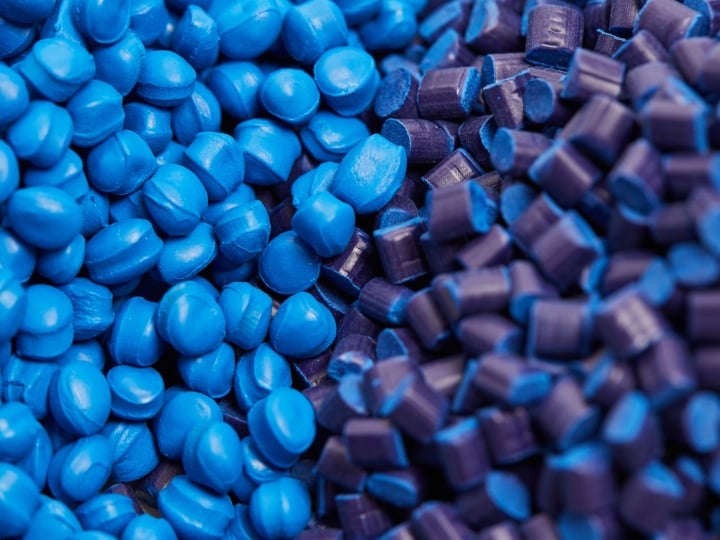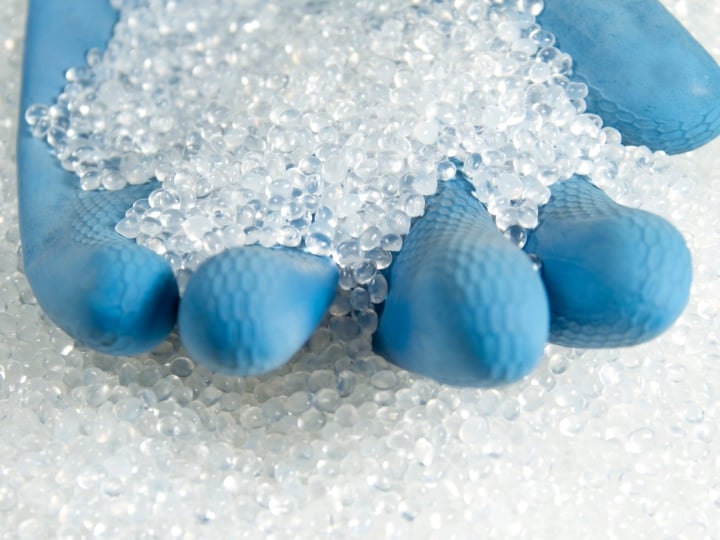Thermal analysis of polymers provides information about their properties and thermal transitions, to determine materials' suitability for intended usage
Thermal analysis and testing of polymers and plastics across the polymer supply chain and lifecycle is a powerful means of measuring physical properties, transitions, ageing processes, the effect of additives and the influence of diverse production conditions on materials.
Across many industries, it is essential that the properties of polymers, raw materials and finished products are well understood as they are integral to enhancing the performance of materials to meet specifications for the desired end-use, and within the remit of product failure analysis.
Our thermal analysis experts deploy a range of thermal techniques to reveal detailed understanding of polymer formulations, the impact of processing and final physical properties of materials, accelerating your product development process and delivering the insight you need to make decisions regarding quality control, research and development or to address failure.
We routinely work with a range of polymer materials including thermoplastics, thermosets, elastomers, composites, raw materials, or resins to measure a wide range of properties and thermal behaviours and applications.
Our polymer laboratories are equipped with a comprehensive suite of thermal analysis techniques, the four main techniques being Differential Scanning Calorimetry (DSC), Thermogravimetric Analysis (TGA), Thermomechanical Analysis (TMA) and Dynamic Mechanical Analysis DM(T)A.
Intertek also performs the following tests and procedures: Thermal Glass Transition analysis (Tg), Heat Deflection Temperature (HDT), Dielectric Spectroscopy (DETA) and Vicat softening point methods.
DSC is a widely-used technique, which will be used to examine the chemical and physical transitions of polymers, for example: during chemical curing, analysis of chemical decomposition, glass transition, melting and crystallization phase (physical) and more, all of which being instrumental in gaining invaluable insight into your materials.
DMA is used to measure behaviours such as elastics modulus, shear modulus, mechanical damping and viscoelastic behaviours. The technique essentially provides information about the glass transition temperature of polymers, the ‘rubbery plateau’ and the onset of the melting transition, and may be used for quality control or product development. Widely regarded as a highly sensitive technique, DMA can recognize small transitional regions that are beyond the resolution of DSC.
To assess a polymer’s useful lifetime we conduct short and long term heat aging programs and weathering studies in conjunction with thermal analysis approaches (such as TGA and DSC) to study thermal decomposition, thermal stability, oxidative degradation or aging analysis in different atmospheres. TGA is regularly deployed in response to requests to determine the content of materials in regard to content plasticizers, polymer content, carbon black filler content, white filler content, and residual content.
Such techniques are used to extract the insight you need to more fully understand your product or process, for example to compare different lots and batches, or to be deployed in competitor product studies, for example to obtain a ‘fingerprint’ of the material of interest, where we would typically apply techniques such as DSC, TGA, TMA and DMA.
Our polymer scientists have many years’ experience in the characterisation of these challenging materials, working with innovative organisations from around the world, helping them to develop new materials and optimise processes across diverse industries such as automotive, aerospace, medical devices, industrial polymer production and stakeholders in the polymer supply chain.
We deliver a detailed understanding of thermal properties through testing services from our leading polymer laboratories which are located in Europe and North America.


